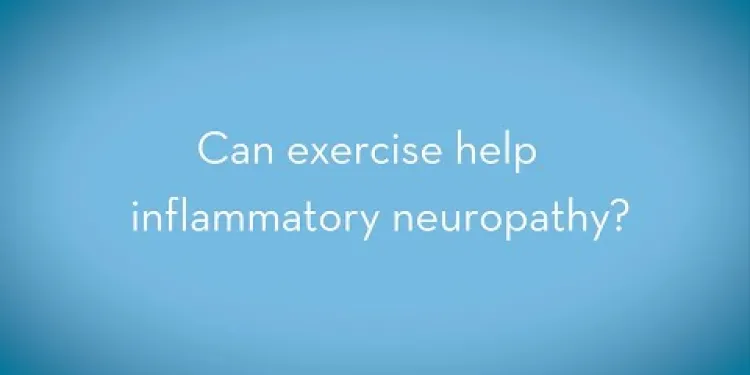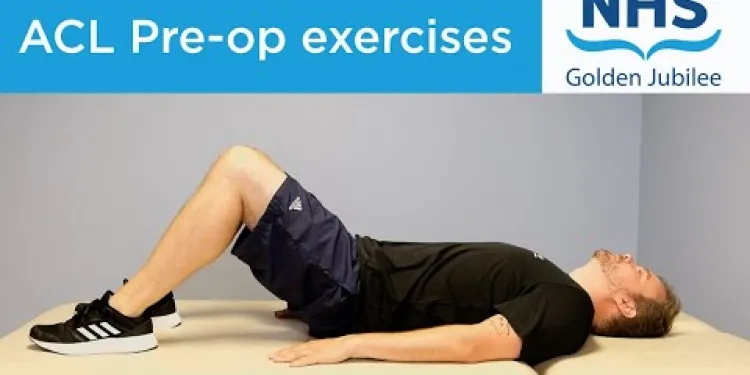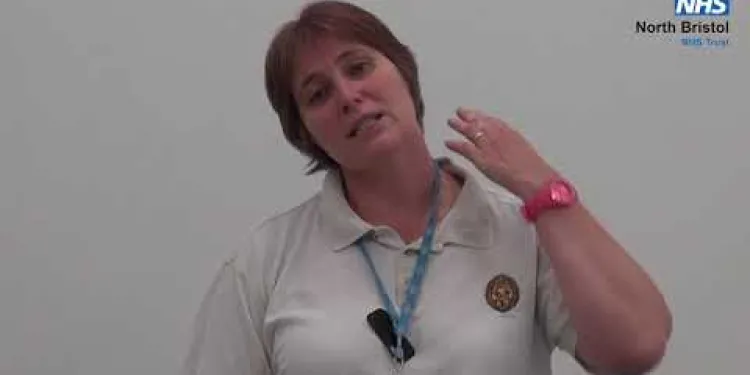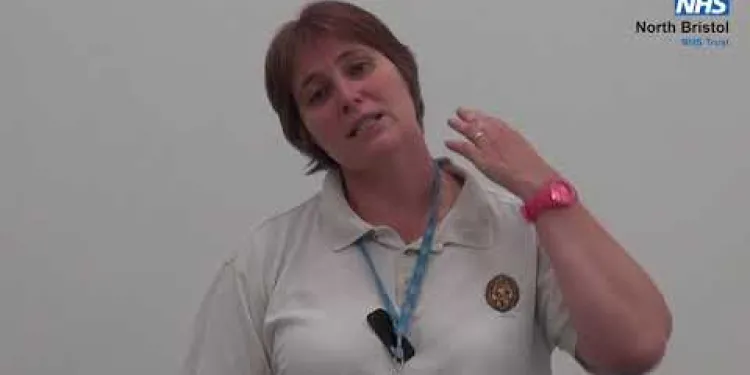
Find Help
More Items From Ergsy search
-

Does physical exercise help people with CFS?
Relevance: 100%
-

Can CFS be prevented?
Relevance: 66%
-

Can CFS symptoms fluctuate over time?
Relevance: 59%
-

How does post-exertional malaise relate to CFS?
Relevance: 58%
-

Myalgic encephalomyelitis or chronic fatigue syndrome (ME/CFS) | NHS
Relevance: 57%
-

How does CFS differ from regular fatigue?
Relevance: 56%
-

What is the prognosis for someone with CFS?
Relevance: 56%
-

Will I be able to engage in physical exercise?
Relevance: 56%
-

Why is it important to increase awareness about CFS?
Relevance: 51%
-

Can children develop chronic fatigue syndrome?
Relevance: 40%
-

How is chronic fatigue syndrome treated?
Relevance: 39%
-

What is chronic fatigue syndrome?
Relevance: 39%
-

Is chronic fatigue syndrome contagious?
Relevance: 36%
-

Can physical exertion trigger a heart attack?
Relevance: 36%
-

Exercise in patients with a neuropathy
Relevance: 35%
-

Will I need physical therapy after a hip replacement?
Relevance: 35%
-

Are there psychological aspects to chronic fatigue syndrome?
Relevance: 33%
-

Who is at risk of developing chronic fatigue syndrome?
Relevance: 33%
-

What role do infections play in chronic fatigue syndrome?
Relevance: 33%
-

How important is physical activity in preventing obesity?
Relevance: 32%
-

Staying Active: National Health Campaigns Promoting Physical Well-being
Relevance: 32%
-

Are there any exercises involved in air physiotherapy?
Relevance: 32%
-

Do mixed exercises help in preventing injuries?
Relevance: 32%
-

ACL pre-operation exercises
Relevance: 31%
-

Do mixed exercises build endurance?
Relevance: 31%
-

How does exercise impact bowel cancer progression?
Relevance: 30%
-

Is chronic fatigue syndrome a mental illness?
Relevance: 30%
-

Can health-related anxiety cause physical symptoms?
Relevance: 30%
-

Can exercise worsen whiplash symptoms?
Relevance: 30%
-

How does exercise benefit pregnancy?
Relevance: 30%
-

Can exercise trigger asthma symptoms?
Relevance: 30%
-

What are mixed exercises?
Relevance: 30%
-

Can physical exercise improve driving safety for seniors?
Relevance: 30%
-

Are there specific benefits of exercise for bowel cancer survivors?
Relevance: 30%
-

Neck Exercises
Relevance: 30%
-

Is it safe to exercise with a cold?
Relevance: 30%
-

Can exercise influence cortisol levels?
Relevance: 30%
-

Neck Exercises
Relevance: 30%
-

Can mixed exercises improve mental health?
Relevance: 30%
-

Can exercise help slow down the progression of bowel cancer?
Relevance: 30%
Understanding Chronic Fatigue Syndrome (CFS)
Chronic Fatigue Syndrome (CFS), also known as Myalgic Encephalomyelitis (ME), is a long-term illness characterized by severe fatigue, sleep problems, and pain. It affects around 250,000 people in the UK and can have a profound impact on the quality of life. The exact cause of CFS is unknown, and its symptoms can vary from mild to severe, making it challenging to manage. Traditional treatments have focused on managing symptoms rather than curing the illness.
The Role of Physical Exercise in Managing CFS
Exercise is commonly recommended for improving general health and well-being, but its role in managing CFS has been controversial. Some studies suggest that a specially tailored exercise program can be beneficial, while others warn of potential drawbacks. Exercise, if not approached correctly, can lead to post-exertional malaise (PEM), a worsening of symptoms following physical activity. Therefore, understanding how to incorporate exercise without exacerbating symptoms is crucial for individuals with CFS.
Benefits of Tailored Exercise Programs
For some people with CFS, a carefully managed exercise program may offer benefits. Graded Exercise Therapy (GET) is an approach that involves starting with activities at a very low level and gradually increasing intensity and duration as tolerated. The aim is to improve energy levels and physical stamina without triggering PEM. Some individuals report improved physical function and quality of life when following a GET protocol under professional guidance. However, it's important to stress that GET should be highly personalized and overseen by healthcare professionals familiar with CFS.
Challenges and Considerations
Despite potential benefits, exercise can pose significant challenges for individuals with CFS. Misguided or excessive exercise can lead to a deterioration in symptoms. The National Institute for Health and Care Excellence (NICE) in the UK advises caution, emphasizing that any exercise program must be adapted to the individual's capabilities and symptoms. It is crucial for patients to listen to their bodies and not push beyond their limits, as overexertion is a common cause of setbacks.
Conclusion
Physical exercise can play a positive role in managing CFS for some individuals, but it must be approached with caution and tailored specifically to the person's condition. While there is potential for improved physical function, the risk of worsening symptoms requires careful management. Patients should seek advice from healthcare professionals with experience in CFS to develop an appropriate exercise regimen. Ultimately, more research is needed to fully understand the benefits and limitations of exercise in CFS treatment.
Understanding Chronic Fatigue Syndrome (CFS)
Chronic Fatigue Syndrome (CFS), also called Myalgic Encephalomyelitis (ME), is an illness that makes people very tired. People with CFS also have problems sleeping and feel pain. It affects about 250,000 people in the UK. CFS makes life harder for them. We do not know what causes CFS. The symptoms can be mild or very bad, which makes it hard to manage. Treatments often try to help the symptoms, not cure the illness.
The Role of Physical Exercise in Managing CFS
Exercise is usually good for health, but for CFS it can be tricky. Some experts think special exercise programs might help, but others say it can cause problems. If exercise is too hard, it might make symptoms worse. This is called post-exertional malaise (PEM). People with CFS need to learn how to exercise without making things worse.
Benefits of Tailored Exercise Programs
Some people with CFS may get help from special exercise plans. Graded Exercise Therapy (GET) starts with easy activities and slowly adds more. This might help improve energy and strength. Some people feel better and can do more when following GET with a professional. But, GET needs to be just right for each person and a doctor should help plan it.
Challenges and Considerations
Exercise can be hard for people with CFS. Doing too much can make symptoms worse. In the UK, experts say to be careful and only do exercises that match what the person can handle. It is important to listen to your body and not do too much, as this can cause problems.
Conclusion
Exercise might help some people with CFS, but it is important to be careful and to make sure the exercise fits the person's needs. It might help with strength and feeling better, but it can also make symptoms worse if not done right. People should ask doctors who know about CFS for help. We still need more research to learn how exercise can help people with CFS.
Frequently Asked Questions
What is CFS?
Chronic fatigue syndrome (CFS) is a complex disorder characterized by extreme fatigue that can't be explained by any underlying medical condition.
Can people with CFS benefit from physical exercise?
Yes, but it's important to approach exercise carefully. Graded exercise therapy (GET) is often recommended, where physical activity is gradually increased over time.
What is graded exercise therapy (GET)?
Graded exercise therapy involves a structured program that gradually increases physical activity, helping improve energy levels and physical function over time.
Are there any risks associated with exercise for CFS patients?
Yes, inappropriate exercise can lead to post-exertional malaise, worsening symptoms. It's important for exercise plans to be tailored to individual capabilities.
What type of exercises are recommended for people with CFS?
Low-intensity physical activities such as walking, stretching, and gentle yoga are often recommended.
How can someone with CFS start an exercise program?
Start with very low levels of activity and gradually increase, under the guidance of a healthcare professional familiar with CFS.
Why is pacing important in exercise for CFS?
Pacing helps manage energy expenditure and prevent overexertion, which can lead to worsening symptoms.
Is it safe to exercise every day with CFS?
It's important to listen to your body and include rest days as needed to avoid pushing too hard, which could lead to a setback.
How does exercise intolerance manifest in CFS?
Exercise intolerance in CFS can result in fatigue, pain, and exacerbated symptoms following physical activity.
Can physical therapy help those with CFS exercise safely?
Yes, physical therapists familiar with CFS can help design safe and effective exercise programs.
What is post-exertional malaise (PEM)?
PEM is a worsening of symptoms following even minor physical, mental, or emotional exertion.
What should be avoided in exercising with CFS?
Avoid high-intensity activities or sudden increases in physical activity, which can trigger symptoms.
How does exercise affect energy levels in CFS?
When done correctly, exercise can help improve energy levels by enhancing physical fitness and endurance.
Are there specific guidelines for CFS patients to follow when exercising?
It's best to follow a personalized plan developed with healthcare support, focusing on low-intensity activities and gradual progression.
What role does rest play in exercising with CFS?
Rest is crucial to allow for recovery and to prevent overexertion and worsening of symptoms.
How can someone with CFS measure progress in their exercise routine?
Progress can be measured by improved tolerance to activity, reduced severity of symptoms, and overall well-being.
Can cardiovascular exercise be beneficial for CFS patients?
Moderate cardiovascular exercise can be beneficial if done carefully and with gradual increases in intensity.
What are common misconceptions about exercise and CFS?
A common misconception is that people with CFS should avoid all exercise or that they should push through fatigue; both can be harmful.
How important is it to track symptoms and activity levels in CFS?
Tracking symptoms and activity levels can help identify patterns and avoid overexertion, leading to better-managed exercise routines.
Is it necessary to consult a healthcare provider before starting an exercise program with CFS?
Yes, consulting with a healthcare provider is crucial to ensure that any exercise program is safe and appropriate for the individual's condition.
What is CFS?
CFS stands for Chronic Fatigue Syndrome. It is a health problem that makes people feel very tired. This tiredness does not go away with rest. People with CFS may also have sore muscles, trouble sleeping, and feel sick.
Here are some ways to help:
- Take breaks often to rest.
- Try gentle exercises like walking or stretching.
- Eat healthy food and drink plenty of water.
- Talk to a doctor for advice.
Chronic fatigue syndrome (CFS) is a health problem. It makes you feel very tired all the time. Doctors do not know why CFS happens.
Can exercise help people with CFS?
People with CFS (Chronic Fatigue Syndrome) often feel very tired. Exercise can be good if done slowly and carefully.
Here are some tips:
- Start with easy exercises like walking.
- Do a little bit at a time. Rest if you feel too tired.
- Talk to a doctor or therapist for help.
These steps can make exercise safe and helpful.
Yes, you can do exercise, but you need to be careful. Try to start with a little bit of exercise and slowly do more as you get used to it. This is called graded exercise therapy (GET).
What is graded exercise therapy (GET)?
Graded exercise therapy (GET) is a way to help people feel better by slowly doing more exercise. It helps people get stronger over time. You start with a little bit of exercise and then do a bit more each time.
This can help if you feel tired or weak a lot. It is important to go slowly and listen to your body.
Some tools that can help you are:
- A diary to write down how much exercise you do each day.
- A timer to help you do exercise for the right amount of time.
- A friend or helper to exercise with you.
Graded exercise therapy is a plan to help you move more. It starts easy and slowly gets harder. This can help you have more energy and get stronger over time.
Is it safe for people with CFS to exercise?
Yes, doing the wrong kind of exercise can make you feel very tired and can make your symptoms worse. It is important to have an exercise plan that is right for you.
What exercises are good for people with CFS?
CFS means Chronic Fatigue Syndrome. It makes people feel very tired.
Light exercises can be helpful. Here are some ideas:
- Take a short walk.
- Try easy stretches.
- Do relaxed yoga.
Here are some tools to help:
- Ask a friend to join you.
- Use a timer to rest often.
Always talk to a doctor before starting exercises.
It's good to do easy exercises like walking, stretching, and slow yoga. These can help you feel better.
How can a person with CFS begin to exercise?
Start with very small amounts of activity. Increase slowly. Get help from a doctor who knows about CFS.
Why is it good to go slow with exercise when you have CFS?
Pacing means not doing too much at once.
With CFS (Chronic Fatigue Syndrome), it's important to go slow.
If you do too much, you might feel extra tired.
Going slow helps you feel better and gives you energy over time.
Here are some tips:
- Do a little bit of exercise each day.
- Rest when you start to feel tired.
- Use a timer to keep track of your exercise time.
- Ask someone to help you plan your exercise.
Pacing is about using your energy in small bits. This way, you don't get too tired and make your symptoms worse.
Is it okay to exercise every day if you have CFS?
CFS means Chronic Fatigue Syndrome. It makes people very tired.
Can you exercise every day if you have CFS? Talk to your doctor first. Everyone is different.
Here are some tips:
- Start slow and gentle.
- Listen to your body. Rest if you need to.
- Try yoga or stretching. They are calm exercises.
- Keep track of how you feel. Write it in a notebook.
Ask for help if you need it. A friend, family, or therapist can support you.
Listen to your body. Take breaks when you need them. Rest days help you stay healthy and strong. If you push too much, you might feel worse later.
What happens when people with CFS find it hard to exercise?
When people with CFS (Chronic Fatigue Syndrome) exercise, they can feel really tired and sore. They might also feel worse after doing physical activities.
Tools to help:
- Try gentle exercise like walking or stretching.
- Rest when you feel tired.
- Use a timer to make sure you don’t exercise too much.
Can Physical Therapy Help People with CFS Exercise Safely?
If you have CFS, it means you feel tired all the time. This makes exercise hard.
Physical therapy can help. Physical therapists are people who know how to help your body move better.
They can show you how to exercise safely. This means you can get stronger without feeling more tired.
Tips:
- Start with small exercises first.
- Rest when you feel tired.
- Ask a therapist for help.
Yes, special doctors called physical therapists can help make safe and good exercise plans for people with CFS (a tired feeling illness).
What is post-exertional malaise (PEM)?
PEM means feeling very tired after doing things.
It can happen after work, sport, or even small tasks.
This feeling can last for hours or days.
Some people need to rest a long time to feel better.
If you feel like this, take breaks and rest often.
You can also talk to a doctor for help.
PEM is when you feel worse after doing even a little bit of physical, mental, or emotional activity.
What to Avoid When Exercising with CFS
Do you have Chronic Fatigue Syndrome (CFS)?
Here is what you should not do when you exercise:
- Do not push yourself too hard. Go slowly.
- Avoid exercises that make you very tired.
- Do not feel bad if you need to rest.
Remember to listen to your body. If you feel pain, stop.
Tools that can help:
- Use a timer to do short exercises.
- Try gentle stretching or yoga.
Do not do hard exercises or suddenly start exercising a lot, because it can make you feel bad.
How does exercise change energy in people with CFS?
CFS stands for Chronic Fatigue Syndrome. It makes people very tired. Exercise can help or hurt. It is different for each person.
Some tips to help with exercise:
- Start slow. Do a little at a time.
- Listen to your body. Rest if you feel too tired.
- Talk to a doctor. They can give advice.
Remember, everyone is different. What works for one person might not work for another.
When you exercise the right way, it can help you feel more energetic. It makes your body stronger and helps you keep going for longer.
Can people with CFS follow special rules for exercise?
If you have CFS (Chronic Fatigue Syndrome), there are tips to help you exercise safely.
- Start with short and easy exercises.
- Rest often and go slow.
- Listen to your body. Stop if you feel too tired.
- Ask a doctor or therapist to help make a plan.
You can also use tools like:
- A timer to keep track of how long you exercise.
- A friend or family member to exercise with you.
It is good to have a special plan made by you and your doctor. This plan should include easy exercises and slowly doing more over time.
Why is rest important when exercising with CFS?
Rest is very important. It helps your body get better and stops you from getting too tired or feeling worse.
Here are some tips to help:
- Take breaks when you feel tired.
- Make sure you sleep enough at night.
- Listen to your body. If you need to rest, do it.
- Try relaxing activities like listening to calm music or doing gentle stretches.
How can someone with CFS see if they are getting better with exercise?
CFS means feeling very tired all the time. It is important to start exercising slowly. Here are some ways to see if you are getting better:
- Write down how much you can do before you feel tired.
- Check if you can do a little more each week.
- See if you feel less tired after doing simple exercise.
- Ask a doctor or a helper how you are doing.
If you need help, talk to someone you trust. You can also use a phone to set reminders and keep notes about your exercises.
We can check how things are getting better in some ways:
- Doing more things without getting tired.
- Feeling better when you have less pain or trouble.
- Feeling happy and healthy overall.
It might help to ask someone to explain tricky words or use pictures to help understand. You can also use apps that read text out loud.
Is exercise good for people with CFS?
Doing exercise that makes your heart healthy is good. Start slowly and do a little more each time. This will help you get stronger and stay safe.
What are some things people often get wrong about exercise and CFS?
Sometimes, people have wrong ideas about exercise and CFS. CFS stands for Chronic Fatigue Syndrome, which means feeling very tired a lot.
Here are some things people might get wrong:
- Some people think exercise can fix CFS, but it is not that simple.
- Other people believe if you have CFS, you should not move at all, but gentle exercise can help a bit.
- It is not true that everyone with CFS feels the same level of tiredness.
If you want to know more, you can:
- Ask a doctor for advice about exercise and CFS.
- Read easy books or watch videos about CFS.
- Join a support group to talk with others who have CFS.
Remember, everyone is different, so what works for one person might not work for another.
Some people think that if you have CFS, you should not exercise at all or that you should keep going even when you're tired. Both of these ideas can be bad for you.
Why is it important to keep track of how you feel and what you do when you have CFS?
CFS stands for Chronic Fatigue Syndrome. It's when you feel very tired all the time.
It's a good idea to write down how you feel each day. This can help you and your doctor understand what makes you feel better or worse.
Here are some tips to help you:
- Use a calendar or notebook to write down your energy levels and any symptoms.
- Note any activities you do, like walking or playing.
- Ask someone you trust to help you keep track.
- Use pictures or stickers if they make it easier.
Keeping track of your feelings and activities can help you see patterns. This way, you won't overdo it, and you can manage your exercise better.
Do I need to talk to a doctor before I start exercising if I have CFS?
If you have CFS (Chronic Fatigue Syndrome) and want to start exercising, it's a good idea to talk to a doctor first. They can help you stay safe and healthy.
Here are some tips for you:
- Ask the doctor what exercises are safe for you.
- Start with small, easy exercises.
- Listen to your body. Stop if you feel too tired or in pain.
- Use apps or tools to help keep track of your exercise.
Talking to a healthcare provider can help you find the best way to exercise with CFS.
It's important to talk to a doctor before starting new exercises. The doctor will help make sure the exercises are safe and right for you.
Useful Links
Have you found an error, or do you have a link or some information you would like to share? Please let us know using the form below.
-->
This website offers general information and is not a substitute for professional advice.
Always seek guidance from qualified professionals.
If you have any medical concerns or need urgent help, contact a healthcare professional or emergency services immediately.
Some of this content was generated with AI assistance. We’ve done our best to keep it accurate, helpful, and human-friendly.
- Ergsy carfully checks the information in the videos we provide here.
- Videos shown by Youtube after a video has completed, have NOT been reviewed by ERGSY.
- To view, click the arrow in centre of video.
- Most of the videos you find here will have subtitles and/or closed captions available.
- You may need to turn these on, and choose your preferred language.
- Go to the video you'd like to watch.
- If closed captions (CC) are available, settings will be visible on the bottom right of the video player.
- To turn on Captions, click settings .
- To turn off Captions, click settings again.
More Items From Ergsy search
-

Does physical exercise help people with CFS?
Relevance: 100%
-

Can CFS be prevented?
Relevance: 66%
-

Can CFS symptoms fluctuate over time?
Relevance: 59%
-

How does post-exertional malaise relate to CFS?
Relevance: 58%
-

Myalgic encephalomyelitis or chronic fatigue syndrome (ME/CFS) | NHS
Relevance: 57%
-

How does CFS differ from regular fatigue?
Relevance: 56%
-

What is the prognosis for someone with CFS?
Relevance: 56%
-

Will I be able to engage in physical exercise?
Relevance: 56%
-

Why is it important to increase awareness about CFS?
Relevance: 51%
-

Can children develop chronic fatigue syndrome?
Relevance: 40%
-

How is chronic fatigue syndrome treated?
Relevance: 39%
-

What is chronic fatigue syndrome?
Relevance: 39%
-

Is chronic fatigue syndrome contagious?
Relevance: 36%
-

Can physical exertion trigger a heart attack?
Relevance: 36%
-

Exercise in patients with a neuropathy
Relevance: 35%
-

Will I need physical therapy after a hip replacement?
Relevance: 35%
-

Are there psychological aspects to chronic fatigue syndrome?
Relevance: 33%
-

Who is at risk of developing chronic fatigue syndrome?
Relevance: 33%
-

What role do infections play in chronic fatigue syndrome?
Relevance: 33%
-

How important is physical activity in preventing obesity?
Relevance: 32%
-

Staying Active: National Health Campaigns Promoting Physical Well-being
Relevance: 32%
-

Are there any exercises involved in air physiotherapy?
Relevance: 32%
-

Do mixed exercises help in preventing injuries?
Relevance: 32%
-

ACL pre-operation exercises
Relevance: 31%
-

Do mixed exercises build endurance?
Relevance: 31%
-

How does exercise impact bowel cancer progression?
Relevance: 30%
-

Is chronic fatigue syndrome a mental illness?
Relevance: 30%
-

Can health-related anxiety cause physical symptoms?
Relevance: 30%
-

Can exercise worsen whiplash symptoms?
Relevance: 30%
-

How does exercise benefit pregnancy?
Relevance: 30%
-

Can exercise trigger asthma symptoms?
Relevance: 30%
-

What are mixed exercises?
Relevance: 30%
-

Can physical exercise improve driving safety for seniors?
Relevance: 30%
-

Are there specific benefits of exercise for bowel cancer survivors?
Relevance: 30%
-

Neck Exercises
Relevance: 30%
-

Is it safe to exercise with a cold?
Relevance: 30%
-

Can exercise influence cortisol levels?
Relevance: 30%
-

Neck Exercises
Relevance: 30%
-

Can mixed exercises improve mental health?
Relevance: 30%
-

Can exercise help slow down the progression of bowel cancer?
Relevance: 30%


